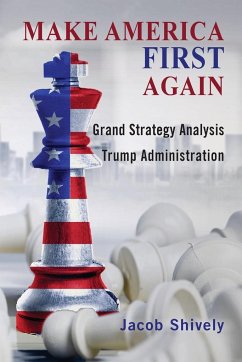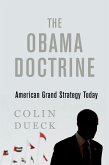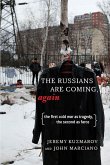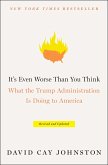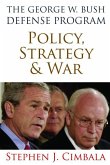*This book is in the Rapid Communications in Conflict and Security (RCCS) Series (General Editor: Geoffrey R.H. Burn). This book examines US grand strategy between two moments, the 2016 presidential election and the 2018 midterm election. It is an early history and an assessment of the Trump administration's grand strategy, but it is also a study of much larger questions. Like US presidents and other heads of government, Donald Trump provokes a wide range of debates. For grand strategy, the debates are familiar but profound: what exactly is the administration's approach to the world and national security? In addition, can one administration or even one individual change a state's grand strategy? Trump's temperament is notoriously public. Is it also uniquely influential? Perhaps Trump the man fundamentally changed US grand strategy during this period. Or, perhaps, he and his administration were constrained by existing strategic commitments. To answer these questions, the following pages unfold the story of Trump's early grand strategy. As a concept, grand strategy itself remains contested. Scholars disagree about whether such strategies are easily changed based upon one leader's prerogatives. They also debate whether and to what degree grand strategies are, in fact, a set of ideas and practices whose direction-like that of an oil tanker in a narrow channel-is unlikely to change. To study this concept itself, the book applies an innovative "grand strategy analysis" framework. Scholars and professionals have traditionally talked past one another on this topic, yet their work is converging. This project draws these strands together, and it uses them to help us understand Trump's grand strategy. It aims to learn whether Trump is indeed a true strategist. It seeks to determine whether one man alone can revise his government's grand strategy. While some readers may disagree with the author's final analyses, but hopefully they will find the claims unignorable, grand strategy analysis (GSA) a vital innovation, and the case history invaluable. To date, work on the Trump administration's grand strategy, though extensive, has been journalistic, partial, or scattered. This book offers a more complete and systematic picture of Trump's grand strategy over most of its first two years. For students, practitioners and scholars, such substantive, concrete work is foundational. The book also engages live and ongoing debates about how to characterize and assess grand strategy. Its grand strategy analysis proposal is an essential consideration for anyone studying or working in this field. Finally, the book sets the stage for ongoing debates. It offers insight for policy makers and a revised analytical framework for scholars.

